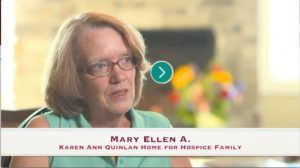
On September 8, 2016, the Mitchell Insurance Agency & First Hope Bank proudly sponsored Mitchell Cares 2nd Annual Charity Casino Gala. Our gala benefited a local home-care specialist organization (Karen Ann Quinlan Hospice) as well as a local child abuse advocacy program (Court Appointed Special Advocates (CASA) of Morris and Sussex Counties). As a result, we raised $20,000 to split between the two charities. The money raised will be used by CASA to provide advocacy for children who are victims of abuse and neglect and are in the foster care system. CASA ensures that these vulnerable children find safe, permanent and nurturing homes. Karen Ann Quinlan Hospice would use the donated money to help provide: grief counseling and educational programs, and special amenities to enhance the quality of life for dying patients – such as heating, cooling, additional caregivers, holiday meals, transportation, and specialized equipment.
To read more about the fundraiser please visit http://themitchellagency.com/everyone-was-all-in-at-our-2nd-annual-charity-casino-gala/


